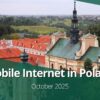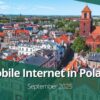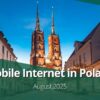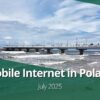In the global race to 5G, the spotlight often falls on tech giants in the U.S., China, and Europe. Yet, while headlines focus on their high-profile moves, Nokia has been quietly making strides in an unexpected yet crucial market: Africa. The Finnish telecom giant, once synonymous with mobile phones, is now pivoting to become a key enabler of 5G infrastructure across the continent.
But what exactly is Nokia doing in Africa? And more importantly, why should you care? Here’s a deep dive into Nokia’s strategic moves in Africa and what it means for the continent – and for anyone keeping an eye on the future of connectivity.
The Ghanaian Gamble: A Blueprint for Africa’s 5G Future
One of Nokia’s most significant moves in Africa is its recent partnership with the UK-based company, Liquid Intelligent Technologies, to build a 5G neutral host network for NGIC (Network Ghana Infrastructure Company) in Ghana. This initiative, announced in early 2024, marks a significant shift in how 5G networks are being deployed in Africa.
Nokia’s role in building this 5G network is not just about providing the technology; it’s about crafting a new model for network deployment. A “neutral host network” means multiple mobile network operators (MNOs) can share the same infrastructure, thereby reducing costs, improving efficiency, and speeding up deployment. This model could be a game-changer for Africa, where the cost of deploying individual networks often hampers widespread connectivity.
With this neutral host network in Ghana, Nokia is leveraging its AirScale portfolio – a suite of end-to-end 5G solutions that includes everything from base stations to cloud-native core networks. This technology promises to deliver ultra-fast speeds, lower latency, and massive connectivity, paving the way for everything from remote healthcare to smart cities.
But why Ghana? The choice of Ghana is strategic. The country has one of the most stable economies in West Africa and is committed to digital transformation. It serves as a perfect testing ground for Nokia’s neutral host model, which, if successful, could be replicated across other African nations.
Upskilling Africa: Nokia’s Role Beyond Infrastructure
Nokia isn’t just laying down the physical infrastructure for 5G; it’s also investing in the people who will build, maintain, and benefit from this next-gen network. In another key move, Nokia has partnered with Nigeria’s National Communications Commission (NCC) to upskill Nigerians on 4G and 5G technologies.
This partnership focuses on training local engineers, technicians, and entrepreneurs on the latest telecom technologies. Why does this matter? Because the success of 5G in Africa isn’t just about towers and base stations; it’s about people. Without a skilled workforce, even the most advanced networks can falter. Nokia’s training programs aim to close the digital skills gap, ensuring that local talent is ready to build, manage, and innovate on these new networks.
Moreover, these training initiatives are not just a short-term strategy; they are part of Nokia’s broader vision for sustainable development. By upskilling local talent, Nokia is helping to create a self-sustaining ecosystem that will foster innovation and drive economic growth across the continent. For anyone invested in Africa’s digital future, this move is a significant step towards ensuring that 5G becomes a tool for empowerment rather than a symbol of inequality.
The Bigger Picture: Africa’s 5G Potential
Africa’s potential for 5G is enormous. The continent is home to over 1.3 billion people, with a rapidly growing middle class and increasing smartphone penetration. According to the GSMA, there will be over 600 million unique mobile subscribers in Africa by 2025, and more than 50% of these users will be accessing mobile internet via 4G and 5G networks.
However, Africa also presents unique challenges. The continent’s vast geographical expanse, diverse population, and economic disparities mean that traditional methods of network deployment won’t work. This is where Nokia’s approach could make all the difference.
By championing a neutral host model and investing in local talent, Nokia is addressing two of the most significant barriers to 5G adoption in Africa: cost and complexity. By lowering the financial burden on MNOs and empowering a new generation of telecom professionals, Nokia is creating a more inclusive digital future for Africa.
What’s in It for Nokia?
Nokia’s moves in Africa are not just altruistic; they are also strategic. As global competition in the telecom sector heats up, Africa represents a vast, largely untapped market. By positioning itself as a key player in Africa’s 5G future, Nokia is not only expanding its market share but also establishing itself as a leader in innovative network solutions.
The company’s strategy in Africa also aligns with its broader global objectives. As Nokia pivots away from consumer products to focus on networks and enterprise solutions, Africa offers a unique opportunity to showcase its technology and expertise. If Nokia can successfully build and manage 5G networks in Africa – one of the world’s most challenging markets – it can do so anywhere.
Why Should You Care?
If you’re reading this from outside Africa, you might wonder why Nokia’s African adventure matters to you. The answer lies in the broader implications of Africa’s 5G journey.
- A Testing Ground for Innovation: Africa’s 5G deployments will serve as a testing ground for new technologies and business models. Successes and failures here will shape how 5G is rolled out in other parts of the world, especially in emerging markets.
- Opportunities for Investors and Entrepreneurs: As 5G takes off in Africa, it will create a host of new opportunities for investors and entrepreneurs. From fintech to e-commerce, healthcare to education, 5G will unlock new possibilities for innovation and growth.
- A More Connected World: In our increasingly interconnected world, the success of 5G in Africa will have global repercussions. It will enhance global connectivity, enabling smoother trade, faster communication, and richer cultural exchange. A more connected Africa means a more connected world – and that benefits everyone.
Looking Ahead: A Quiet Revolution
Nokia’s efforts in Africa may not always grab headlines, but they represent a quiet revolution that could reshape the continent’s digital landscape. By building a 5G future that is inclusive, efficient, and locally empowered, Nokia is doing more than just laying down infrastructure; it’s laying down the foundation for a new era of growth and innovation.
For Africa, 5G is more than just a technological upgrade; it’s a pathway to economic development, social inclusion, and global integration. And for Nokia, it’s a chance to redefine its role in the global telecom ecosystem, not just as a vendor, but as a visionary.
In the end, what Nokia is doing in Africa matters – not just for the continent, but for anyone who believes in the transformative power of technology. So, keep an eye on this quiet revolution; it’s shaping a future that affects us all.
Sources: telecomreviewafrica.com | connectingafrica.com | techinafrica.com










Leave a Comment
Your email address will not be published. Required fields are marked with *